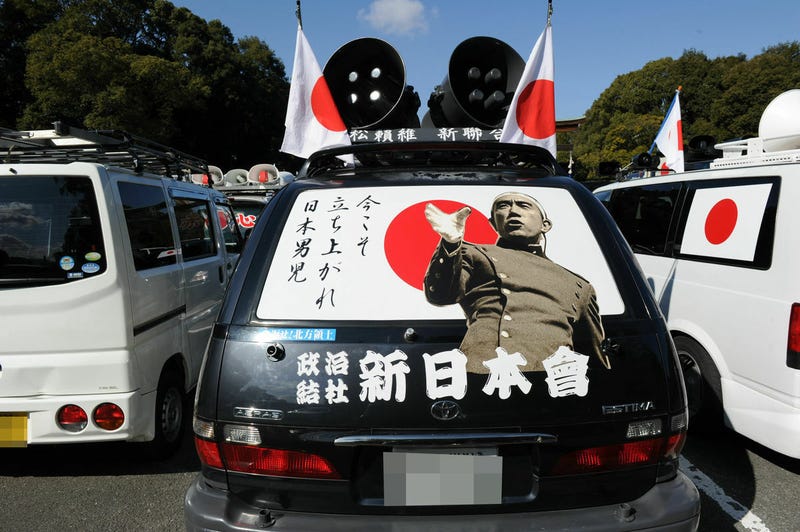As the tin says: one generation after the American Civil War (Yes. That's post-1900. That's why I'm posting in this forum) the Southern states began propagating the 'Lost Cause': the idea that the soldiers of the Confederacy were not traitors nor rebels but well-meaning patriots morally at least equivalent to their Union counterparts. The reason they lost was because the South never really had a chance against the economic, technological and financial superiority of the North and the fact that many Confederates still signed up as soldiers even if their casuse was 'lost from the start' only enhanced their heroism.
Although I like to give the benefit of doubt and assume that the 'Lost Cause Mythos' opriginally was about giving Confederate veterans the same recognition their Union counterparts earned by actually winning the war, the movement quickly morphed into a celebration of the Confederate cause and it's values, in particular by white Americans.
It went on to provide a narrative for their post-emancipation systematic suppression of the African-American population and was used extensively to cement a new racism where the descendants of the former slaves were systematically denigrated into second-class citizens. Although originated in the former Confederate states, the movement/narrative/ideology quickly spread into the new territories that gained statehood after the Civil War and even found traction in some areas of the former Unionist states. And so by the end of the Woodrow Wilson presidency, in many parts of the country it felt that except for the abolition of official slavery, the South had won on every other level.
So here is the question. Could a narrative like this have existed in other nations, referring to other wars? Any situation where the 'bad guys' righeously lost, yet came back with a narrative that hot only freed them from the 'bad guys' label but also questioned the moral superiority of the winning side and laid the framework for many former excesses to continue in a slightly different form.
I know for some time in the late 1950's early 1960's an aspect of the West German re-militarization was the rebranding of several Nazi air, sea or tank aces as heroic soldiers, even if they were fighting for a morally bankrupt ideology, combined with a systematic glossing over of their battles with the Western allies in favor of their bravery on the Eastern Front against the Communists. This however did not go so far as to celebrate the Nazi extermination camp and the systematic reign of terror over the civilian population of the East. So arguably that was not a 'Lost Cause' in the strictest sense of the word.
I also hear that even today there are similar ideologies in Japan glossing over their atrocities in China, Korea and the Pacific in favor of the heroic deaths of their soldiers. Could that count even if it is not used to justify today's actions against Chinese or Korean nationals or businesses?
What other examples could be possible? a post-1945 Nazi-inspired France based on a lost cause narrative for the Vichy regime? A longer civil war in 1918/1919 Germany causing a 1930's resurgence of Communists or Emperor-worshipers even if their dreams of a new German nation were smashed in 1920? Elevation of former Nazi-sympathizers to independence heroes in regions with a strong seccessionist movement like Bretagne, French Basque, Slovenia, Croatia, Flanders.....
Your ideas, real life possibilities or Alternate History....
Although I like to give the benefit of doubt and assume that the 'Lost Cause Mythos' opriginally was about giving Confederate veterans the same recognition their Union counterparts earned by actually winning the war, the movement quickly morphed into a celebration of the Confederate cause and it's values, in particular by white Americans.
It went on to provide a narrative for their post-emancipation systematic suppression of the African-American population and was used extensively to cement a new racism where the descendants of the former slaves were systematically denigrated into second-class citizens. Although originated in the former Confederate states, the movement/narrative/ideology quickly spread into the new territories that gained statehood after the Civil War and even found traction in some areas of the former Unionist states. And so by the end of the Woodrow Wilson presidency, in many parts of the country it felt that except for the abolition of official slavery, the South had won on every other level.
So here is the question. Could a narrative like this have existed in other nations, referring to other wars? Any situation where the 'bad guys' righeously lost, yet came back with a narrative that hot only freed them from the 'bad guys' label but also questioned the moral superiority of the winning side and laid the framework for many former excesses to continue in a slightly different form.
I know for some time in the late 1950's early 1960's an aspect of the West German re-militarization was the rebranding of several Nazi air, sea or tank aces as heroic soldiers, even if they were fighting for a morally bankrupt ideology, combined with a systematic glossing over of their battles with the Western allies in favor of their bravery on the Eastern Front against the Communists. This however did not go so far as to celebrate the Nazi extermination camp and the systematic reign of terror over the civilian population of the East. So arguably that was not a 'Lost Cause' in the strictest sense of the word.
I also hear that even today there are similar ideologies in Japan glossing over their atrocities in China, Korea and the Pacific in favor of the heroic deaths of their soldiers. Could that count even if it is not used to justify today's actions against Chinese or Korean nationals or businesses?
What other examples could be possible? a post-1945 Nazi-inspired France based on a lost cause narrative for the Vichy regime? A longer civil war in 1918/1919 Germany causing a 1930's resurgence of Communists or Emperor-worshipers even if their dreams of a new German nation were smashed in 1920? Elevation of former Nazi-sympathizers to independence heroes in regions with a strong seccessionist movement like Bretagne, French Basque, Slovenia, Croatia, Flanders.....
Your ideas, real life possibilities or Alternate History....
Last edited:



